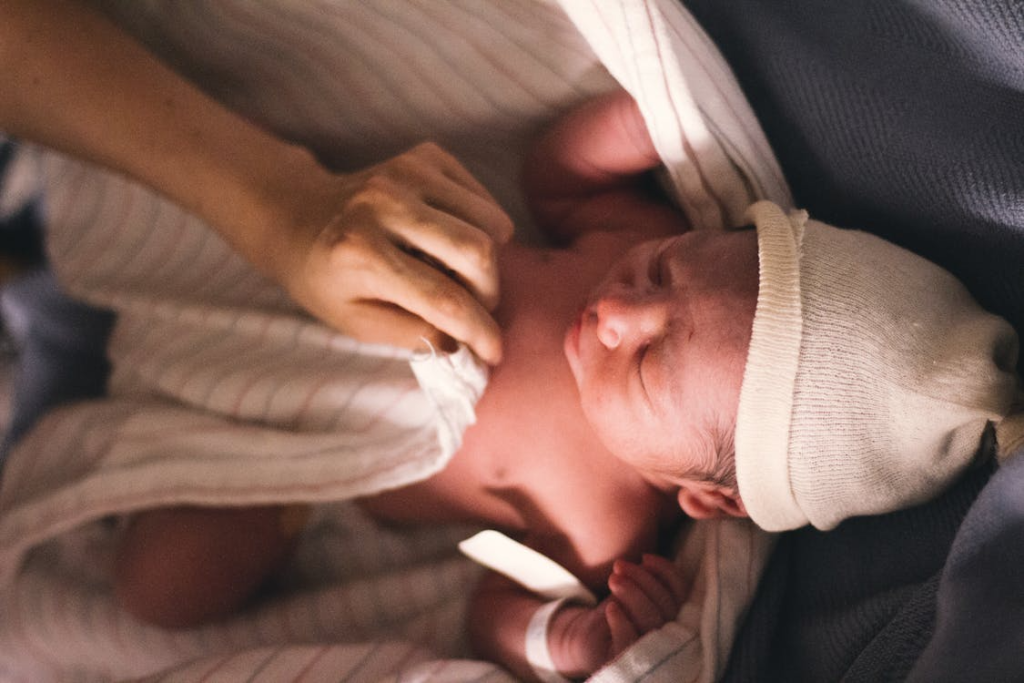
Birth injuries are distressing for families and can result in long-term medical complications for the child and emotional trauma for the parents. When such injuries are caused by medical negligence, families often seek compensation to support their child’s ongoing care.
Unfortunately, these claims can be lengthy, emotionally draining, and inconsistent in their outcomes. However, there’s growing hope that artificial intelligence (AI) could change that.
In this blog post, we explore how AI could revolutionise the process of claiming compensation for birth injuries, improving both the speed and fairness of outcomes. For those based in the North West, experienced birth injury solicitors in Manchester can provide expert advice tailored to your situation.
Image credit: Pexels
The Problem with Current Claim Processes
Birth injury claims often involve a mountain of paperwork, multiple medical assessments, legal procedures, and input from various professionals. This can stretch cases over months or even years, adding to the emotional and financial burden already carried by the affected families.
It can also lead to inconsistent outcomes, with compensation awards varying significantly depending on factors such as geography, legal representation, and the availability of expert witnesses. A lack of standardisation has long been a criticism of the system.
A Parliamentary report on NHS maternity services highlighted delays, miscommunication, and inconsistent handling of negligence claims as key concerns. Families affected by birth trauma frequently experience a lack of timely resolution, which impacts their trust in the healthcare and legal systems.
Image credit: Pexels
How AI Could Transform Birth Injury Claims
Artificial intelligence is already being used in various sectors to automate repetitive tasks, analyse complex datasets, and predict outcomes based on past patterns. When applied to medical negligence and personal injury law, these capabilities could bring much-needed improvements.
AI tools could, for example:
- Rapidly review thousands of medical records to identify patterns of negligence.
- Flag inconsistencies in hospital procedures or patient care.
- Generate reports that predict likely outcomes based on precedent.
- Automate administrative processes to speed up case progression.
With AI handling the time-consuming data analysis, solicitors and caseworkers could focus more on client care, communication, and advocacy.
Greater Accuracy in Medical Record Review
One of the biggest challenges in birth injury cases is understanding exactly what went wrong. Medical records can be vast, technical, and difficult to interpret. AI tools trained on thousands of birth injury cases can quickly pinpoint critical incidents, missed steps, or anomalies that might indicate negligence.
According to NHSX, which leads the NHS AI Lab, such technologies are already being explored to support diagnostic accuracy and patient safety.
The same principles can apply to legal reviews, where identifying deviations from standard medical practice is key to building a case.
Reducing Delays and Bottlenecks
AI could help reduce the long waits currently associated with birth injury compensation claims. One way it can do this is by pre-filling documents, suggesting optimal timelines, and monitoring progress. AI platforms could also automatically alert solicitors or families when deadlines are approaching or documents are needed.
As noted by The Alan Turing Institute, AI can support fairness and efficiency in healthcare systems, and there’s growing potential for similar impact in adjacent legal frameworks.
In cases where early intervention could prevent drawn-out litigation, AI could highlight alternative resolution strategies such as mediation or structured settlements.
Fairer, More Transparent Compensation
One of the biggest concerns for families is whether the compensation they receive will truly meet their child’s needs. AI can help assess the long-term financial impact of birth injuries, using data from similar cases to create more consistent and evidence-based settlement estimates.
This can also reduce the perception of arbitrary decisions and build confidence in the system. With the help of AI-generated models, judges and legal representatives might be better equipped to assess future care needs, equipment costs, and therapy requirements.
Furthermore, predictive models can help standardise how non-economic damages like pain and suffering are quantified, improving transparency across regions.
Protecting Privacy and Ethics
Of course, using AI in legal claims involving sensitive health data raises legitimate concerns about privacy, bias, and accountability. It’s essential that AI tools are designed and deployed ethically.
This includes:
- Ensuring data used to train AI is anonymised and stored securely.
- Regularly testing AI systems for bias, especially against underrepresented groups.
- Providing transparency about how AI contributes to decisions.
- Always keeping a human in the loop to review AI recommendations.
Resources like Understanding Patient Data help charities and developers ensure that medical data is used responsibly, and such frameworks will be critical in this space, producing crucial reports on matters such as GP record data and how it is used.
Real-Life Potential: Case Study Examples
While full-scale AI implementation in birth injury claims is still in its infancy, early pilot programmes in the healthcare and insurance industries show promise.
For instance, some NHS trusts have used AI-powered tools to analyse birth outcomes and identify patterns linked to preventable injuries.
As these tools evolve, the legal profession is likely to see more integration of AI into tasks like document review, claim valuation, and litigation forecasting.
Final Thoughts: A New Era for Claimants
For families facing the aftermath of a birth injury, the idea of navigating a long and uncertain legal process can feel daunting. But with the support of AI, there’s real hope that the system can become more compassionate, accurate, and efficient.
By streamlining administrative work, enhancing medical reviews, and promoting fairer compensation models, AI can allow lawyers to focus on what truly matters: supporting families through some of the most difficult moments of their lives.
Please be advised this article is for informational purposes only and should not be used as a substitute for advice from a trained legal or medical professional. Always seek the advice of a qualified solicitor or medical negligence expert if you are considering a birth injury compensation claim.







